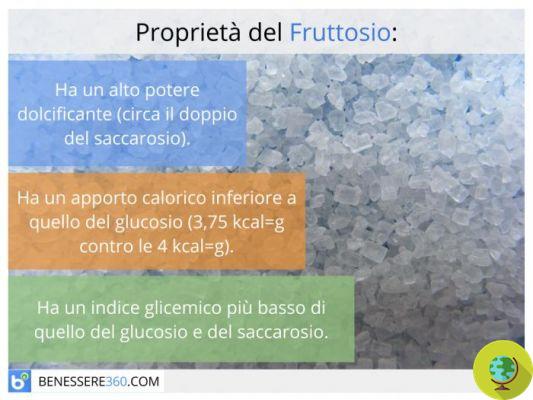
Is fructose a beneficial sweetener for health? It is necessary to distinguish between fructose naturally contained in fruit and industrially produced fructose, derived from corn and sold as a sweetener to be considered "dietary". The US experts have decided to clarify the real effect of fructose with regard to weight loss and the reduction of satiety.
Don't store avocado like this: it's dangerous
Il fructose it's a diet sweetener is it beneficial to health? It is necessary to distinguish between fructose naturally contained in fruit and industrially produced fructose, derived from corn and sold as a sweetener to be considered "dietary". US experts have decided to clarify the real effect of fructose as regards the weight loss and reduction of satiety.
The study in question was sponsored by Kathleen Page, expert of the School of Medicine ofYale University, which has identified some correlations between the intake of fructose as a sweetener in place of the common XNUMX/XNUMX cup sugar andweight gain. The expert's attention focused on the regions of the brain that deal with the regulation of the sense of hunger.
The experts wanted to compare the action on the body and brain of the ingestion of fructose and glucose, understood as the common sugar. According to experts, ingesting glucose causes the brain to produce a increased feeling of satiety compared to the case in which it was decided to take fructose. The ingestion of glucose would in fact reduce the cerebral blood flow towards the areas of the brain related to appetite, leading to the production of a real feeling of satiety.
This would not happen, according to experts, in the event that glucose is replaced by fructose, and precisely for this reason the increase in consumption of fructose can be considered as one of the causes of the possibility of accumulation of extra pounds in the course of a diet. According to Kathleen Page, the increased consumption of fructose may be related to the onset of overweight and obesity.
According to the expert, fructose acts on the body and on our brain, pushing us to look for food several times during the day and increasing our desire to eat moreover. On the contrary, the intake of glucose would have a greater impact on the inhibition of the sense of appetite.
According to experts, cerebral blood flow linked to the hypothalamus region is significantly reduced following the ingestion of glucose, thus significantly slowing down brain activities related to appetite. A diet that includes the intake of fructose would therefore act in a little incisive way with respect to the sense of satiety, in comparison to a diet in which glucose is allowed, with the possibility of a unwanted weight gain. The research results were published on the pages of the Journal of the American Medical Association.
Marta Albè
ALSO READ:
- Natural sweeteners: 10 valid alternatives to white sugar
- Stevia: cultivate and produce your own sweetener natural


























